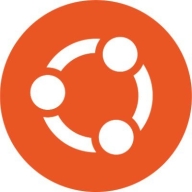

Ubuntu Linux and Zephyr compete in the operating systems category. Ubuntu Linux seems to have the upper hand due to its comprehensive features and extensive community support for broader applications.
Features: Ubuntu Linux provides robust security features, extensive software support, and a vast library of applications. Zephyr is known for its real-time operating system functions, modularity, and suitability for resource-constrained devices.
Ease of Deployment and Customer Service: Ubuntu Linux offers straightforward deployment with extensive documentation and community support, allowing flexibility across various hardware platforms. Zephyr's deployment process is tailored for embedded systems, with focused support for specific hardware and comprehensive developer resources.
Pricing and ROI: Initial setup costs for Ubuntu Linux are typically higher, with its enterprise support options, but it delivers significant ROI for businesses valuing extensive software options and scalability. Zephyr's lower cost fits its streamlined nature, offering substantial ROI in embedded environments where efficiency is vital.
| Product | Market Share (%) |
|---|---|
| Ubuntu Linux | 9.4% |
| Rocky Linux | 12.2% |
| Windows Server | 9.3% |
| Other | 69.1% |
| Product | Market Share (%) |
|---|---|
| Zephyr | 25.5% |
| QNX Neutrino | 25.0% |
| Amazon FreeRTOS | 19.8% |
| Other | 29.700000000000003% |

| Company Size | Count |
|---|---|
| Small Business | 84 |
| Midsize Enterprise | 21 |
| Large Enterprise | 53 |
Ubuntu Linux is an open-source platform known for its robust security, ease of use, and rapid performance. Its lightweight design and comprehensive support system make it ideal for diverse IT environments, providing seamless management and scalability options.
Ubuntu Linux stands out with its open-source nature that allows extensive customization and access to a broad range of free software. It is widely praised for its stability and a vast package repository offering regular updates, enhancing its usefulness across different sectors. The platform is equipped with a lightweight design and excellent community support, making it scalable and easy to manage. While it could improve in areas like Windows software compatibility and user interface refinement, its benefits in enterprise management and development projects are undeniable. Improved documentation, better hardware integration, and enhanced third-party application compatibility are additional focal points to consider.
What are the key features of Ubuntu Linux?
What benefits should be considered from reviews?
Ubuntu Linux is prominently implemented in industries for tasks such as server management, application deployment, and software development. Its resource efficiency and open-source tool compatibility make it a favorite for programming, research, and cybersecurity. Companies frequently use it for web hosting, cloud services, and managing multi-user enterprise solutions.
Zephyr is a comprehensive test management tool widely favored for its ability to automate and manage test cases, enhancing software quality and functionality verification. It seamlessly integrates with tools like JIRA, boosting DevOps and continuous testing workflows. Key features include real-time reporting, extensive test case management, and customizable options catering to various testing needs. Users benefit from improved efficiency, accuracy, and collaboration, leading to significant organizational advancements and cost savings. Zephyr streamlines test planning, execution, and bug tracking, offering valuable insights for informed decision-making and quality assurance.
We monitor all Operating Systems (OS) for Business reviews to prevent fraudulent reviews and keep review quality high. We do not post reviews by company employees or direct competitors. We validate each review for authenticity via cross-reference with LinkedIn, and personal follow-up with the reviewer when necessary.